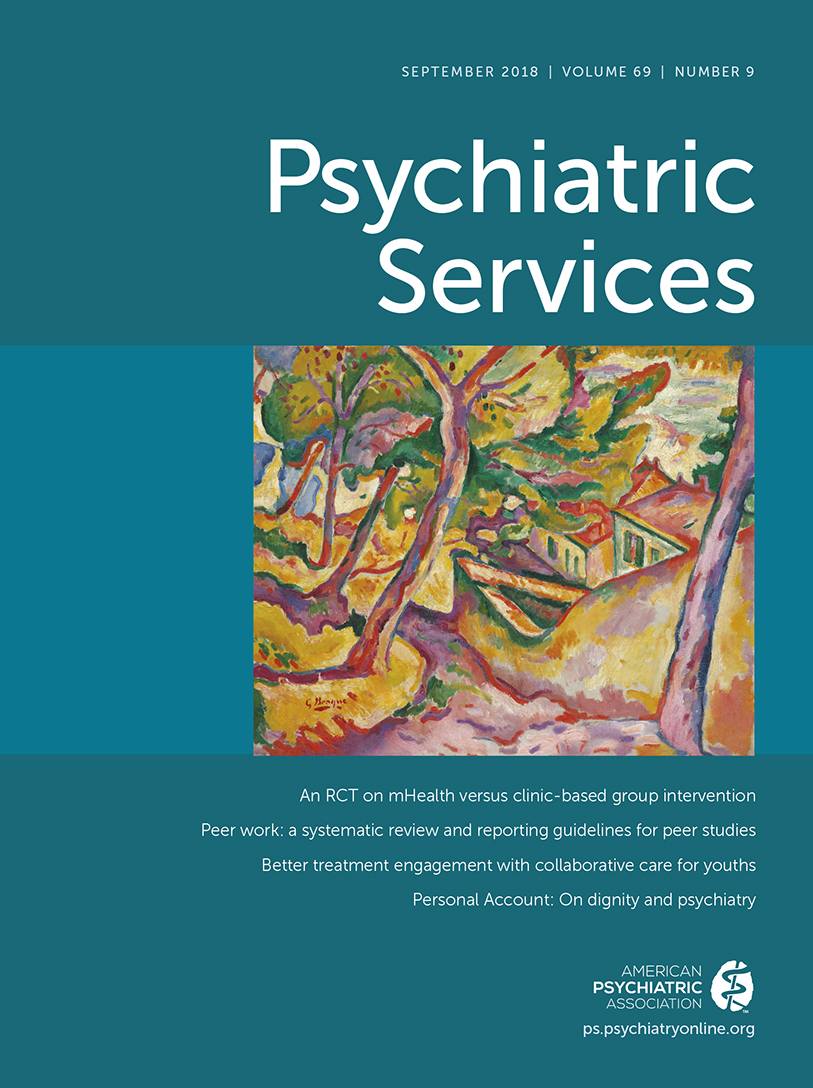A Comparison of Participants in Two Community-Based Programs: Assisted Outpatient Treatment and a Mental Health Court
Abstract
Objective:
Mental health courts and assisted outpatient treatment (AOT) are tools to help people with serious mental illness engage in treatment and avoid or reduce institutionalization. As both programs become increasingly prevalent, questions remain about whether people with severe mental illness who receive AOT have the same characteristics, histories, and service needs as those who participate in mental health courts. If there are differences, each program may require assessments and interventions tailored to the specific characteristics and needs of participants.
Methods:
This study examined administrative criminal justice and mental health services data for 261 people with serious mental illness who participated in AOT, a mental health court, or both over seven years.
Results:
Three percent of the sample participated in both programs. Compared with participants in mental health court, participants in AOT were older, less likely to have an alcohol use disorder, and more likely to have a schizophrenia spectrum disorder than a bipolar disorder. The participants’ histories of crisis mental health service utilization, hospitalization, and incarceration prior to program entry varied significantly by program.
Conclusions:
The findings suggest that there are differences among individuals with serious mental illness who are served by AOT and mental health court programs. AOT participants had greater engagement with mental health services, and a significant portion of AOT participants also had a prior criminal history that placed them at risk of future justice involvement. Program administrators need to recognize and address the clinical and criminogenic needs that place individuals at risk of becoming hospitalized and incarcerated.



